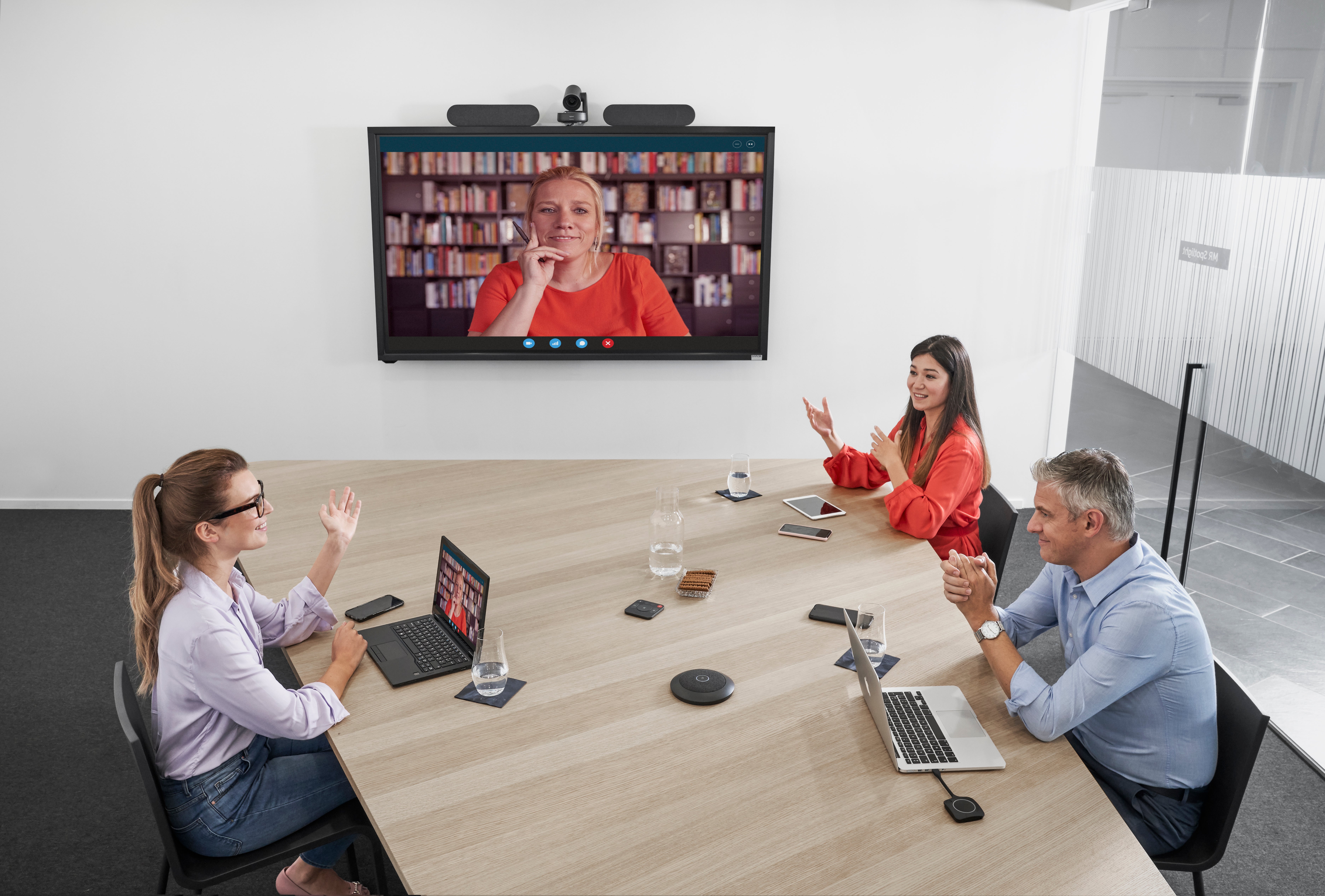What UK workers really want from their hybrid offices
THE ARTICLES ON THESE PAGES ARE PRODUCED BY BUSINESS REPORTER, WHICH TAKES SOLE RESPONSIBILITY FOR THE CONTENTS


Barco is a Business Reporter client
This autumn marked an important step for a number of UK white-collar workers. After nearly 18 months of working from home, many businesses began to call their employees back to the office. And judging from the packed crowds once again filling roads and public transport networks, workers are heeding this call.
However, even as offices reopen, not all of us will be travelling in every day of the week. Some workers are not yet ready to forego the flexibility and conveniences they’ve enjoyed while working remotely. In turn, more companies are evaluating a hybrid approach to bridge the gaps and accommodate employees’ varying preferences.
So how will the hybrid work environment take shape? We’ve heard about and planned for hybrid work since the beginning of the year, and the extended ‘return to office’ rush will serve as its first true test. Ultimately, while the dynamics of hybrid work will differ among industries and companies, some commonalities are emerging among the initial desires and preferences of UK employees.
Earlier this year, Barco commissioned research to understand employee expectations and needs for the future of work, particularly as we transition into a hybrid world. The feedback we gathered paints a clear picture of what the workforce will want to see among the structure and capabilities of their future office.
Listening to employee demand
Our recent research revealed that 56 per cent of respondents want to go back to the office, indicating a clear desire for some type of normality. As we return to a different way of working, businesses face greater pressure to listen to their employees and build the future hybrid workplace around their needs.
Unfortunately, some businesses appear to be slow to react to employee demand or are just unsure of how to implement a successful hybrid approach. Our research found that nearly one-third of UK workers (33 per cent) feel their employer does not prioritise their needs enough to successfully work in a hybrid model.
Ultimately, this trend reveals a clear disconnect between what UK white-collar workers believe they need to succeed in the hybrid work environment and what they actually receive from their employers. Half of UK employees already admit to struggling to connect to meeting-room equipment and businesses have a challenge on their hands to carry the ease at which we connected and collaborated in meetings during the remote working era back into the office with us.
Investing in a hybrid future
Employees’ desires for more flexible and convenient work technology are another key by-product of 18 months of remote work. We’ve seen easily accessible, one-click video conferencing overtake audio calls and complex conference rooms as our go-to method of engagement, and workers expect their employers to extend this simplicity to the office.
Our research further indicates that white-collar workers value technology improvements that will allow them to do their jobs efficiently from anywhere. When asked to detail their desired tech investments, 47 per cent placed video conferencing equipment at the top of their list, with 43 per cent requesting the installation of wireless meeting-room technologies.
Many workers continue to rely on our laptops as critical work hubs, and our research shows that this trend is unlikely to change. More than one-third (35 per cent) of UK workers requested both touchscreen technology and technology that enables them to use their laptop as a command centre for meetings among their top priorities for the office. The findings indicate that workers will likely favour a Bring Your Own Meeting (BYOM) approach, where employees host video calls from their own devices via the existing meeting-room equipment – ultimately reflecting and building upon the approach they took while having to work from home.
A warning to employers
Employees have been very clear in their expectations, and time will tell whether businesses will take stock and listen. UK workers are clearly open to embracing the hybrid model and have grown comfortable with remote, laptop-driven video collaboration and content sharing. Even as workers return to the office – fully or partially – these technology habits are likely to continue.
The dangers of not addressing this divide are quite clear. With the impact of the ‘great resignation’ still looming, businesses face greater hurdles to attract and retain talented staff. The past year has also proven that technology and flexibility are no longer simply components of the workday but essential recruitment and retention differentiators. If businesses wish to succeed in this new way of working, they will likely need new approaches to meet employees where they are – and wish to be. If businesses fail to meet these expectations, employees are well within their right to question the rationale behind returning to the office.
Take a test and receive a personalised guide to hybrid work.
Try ClickShare for free
Originally published on Business Reporter